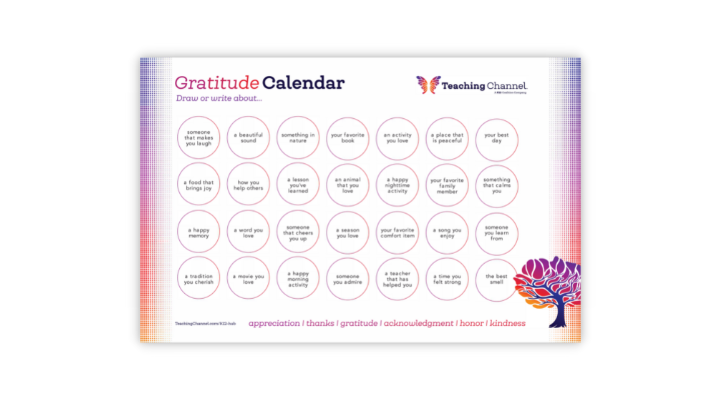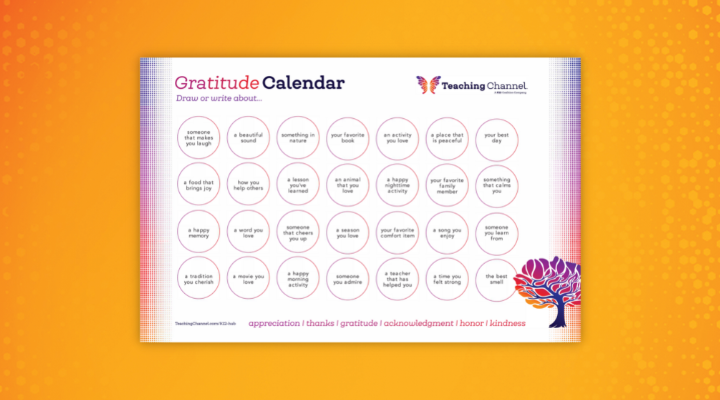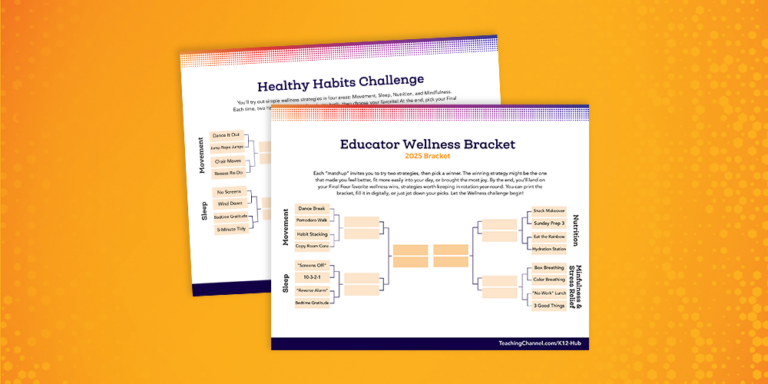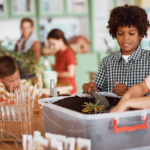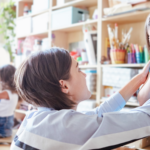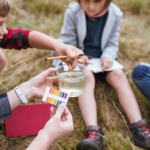If you’ve led a gratitude exercise with your students before, you know that the typical gratitude list consists of family, friends and maybe a favorite possession. While these responses can be developmentally appropriate, it’s beneficial to stretch students’ thinking about all of the wonderful things they are grateful for. Brain research tells us that the practice of gratitude releases “feel good” chemicals in the brain that reduce stress and build empathy. Scientists have even suggested that the practice of gratitude changes the brain, making us feel happier and more content.
This Fall, start a regular routine of giving thanks with our downloadable Gratitude Calendar. No need to spend time thinking about the how, when, and what of gratitude practice! Just grab our calendar and set aside a few minutes each day to focus on the people and things we are grateful for!
